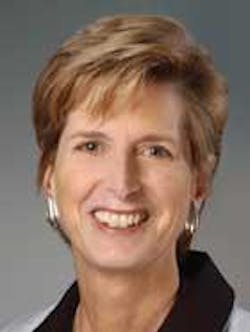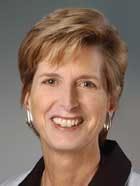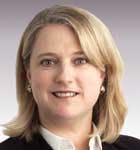Water Think Tank Talks Up Meeting of the Minds
by Carlos David Mogollón, Managing Editor
• Former EPA administrator and NY environmental lawyer team to create Water Policy Institute – a new brain trust to unite the water industry's best minds on critical issues such as infrastructure needs and climate change. Members welcome...
This summer, water utility and resource decision-makers gained a new ally to assist them on crucial choices on water resources and related critical infrastructure. The Water Policy Institute was launched in June by Kathy Robb, an environmental law attorney at the New York practice of Hunton & Williams LLP, and former NJ Gov. Christine Todd Whitman.
Whitman, the first US-EPA administrator under Pres. George W. Bush from 2001-03, is president of the Whitman Strategy Group, a Washington, DC, consulting firm specializing in government relations and environment and energy issues. She's also co-chair of the National Smart Growth Council, a board member of the Council on Foreign Relations, and a trustee of the Eisenhower Fellowships.
A board member of the Environmental Law Institute, Robb also is cofounder of the Women's Network for a Sustainable Future, which provides a forum for business and professional women to congregate, reflect and act on converging issues of corporate social responsibility and sustainable development. It was Robb who approached Whitman about the forming the institute, which is housed by her law firm.
The institute's advisory panel includes: Leslie Carothers, Environmental Law Institute president; Gabriel E. Eckstein, Texas Tech University School of Law professor; Paul Faeth, Global Water Challenge executive director; David Freestone, World Bank senior legal advisor; G. Tracy Mehan III, Cadmus Group principal and former EPA assistant administrator for water; H. Craig Manson, University of the Pacific environmental law lecturer and former U.S. Interior Department assistant secretary for fish, wildlife and parks; Mark Van Putten, ConservationStrategy consultants founder; David L. Sunding, University of California-Berkeley professor and Berkeley Water Center co-director; and Robert N. Stavins, Harvard Environmental Economics Program director. Membership also includes BP, Central Arizona Project, GE Water and representatives of other industry stakeholders.
"And every single one of them is a thought leader in the water area and they each bring a different perspective," Robb said. "We have been speaking with lots and lots of sectors, companies, industries, individuals about membership, which we're deep into now."
Whitman noted the institute's first order of business is developing white papers to aid progress toward informed decisions in our nation's capital even if it's just collating existing reports that offer a broader perspective on a particular issue. She pointed out, often, the problem slowing responsible legislation or rulemaking is all relevant data hasn't been developed or pulled together for decision-makers.
"We heard at our organizational meeting about a lack of consistent data out there," said Whitman.
But going forward, she can see the institute stretching out to host forums to foster a meeting of the minds here or internationally since most of these issues cross borders or affect us on a global basis. She stresses, for instance, that while global warming may be grabbing headlines of late, infrastructure investment demands make water quality and resource planning a more pressing issue in the United States today. For our interview with Christine Todd Whitman in full in Q&A format, click here. For our interview with Kathy Robb, click here


